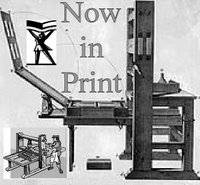
CALL FOR PAPERS
2009 SBL Mid-Atlantic Regional Meeting
March 26-27, 2009
Radisson Hotel at Cross Keys
5100 Falls Road
Baltimore, Maryland 21210
Phone: 410-532-6900; Fax: 410-532-2403
www.radisson.com/baltimoremd
Dear Colleague,
On behalf of the MAR-SBL Regional Executive Committee, it is our pleasure cordially to invite you to submit proposals for the 2009 SBL Mid-Atlantic Regional Meeting on March 26-27, 2009, at the Radisson Hotel at Cross Keys—two miles from Baltimore’s Penn Station, six miles north of downtown Baltimore, and eighteen miles from Baltimore-Washington International Airport (BWI). We are excited to announce that Dr. Sharon Ringe, Professor of New Testament at Wesley Theological Seminary will serve as our plenary speaker this year.
Please consider offering a paper proposal in any area of Biblical Studies. For those interested, there is an overall MAR-AAR/SBL theme this year of "Religious Studies & Sustainability: Conversations and Crossroads." Paper proposals could address issues such as religious understandings of nature and the natural world, religion and ecological crisis/sustainability, religion and technological development, the intersection of religion and science, and other subtopics related to the theme. Proposals related to this theme are especially welcome.
You are also welcome and encouraged to propose new sessions, panels, and other types of innovative program blocks. For example, consider organizing a panel of your doctoral students or seminary students in connection with a current seminar you are teaching. Or, consider offering a workshop on teaching innovations, educational technology, or the interface between biblical studies and world events, the media, or the pulpit, etc. Also, if you are interested in volunteering this year as a section-head or in another needed capacity, please let us know by contacting our new regional coordinator, Dr. Jeremy Schipper at
schipper@temple.edu.
Please see the proposal/abstract instructions and guidelines printed below. Paper proposals are due Friday, December 5, 2008, but we encourage you to submit yours now. Presenters are required to pre-register for the conference to appear in the program book.
The Radisson Cross Keys offers online hotel room registration at
http://www.radisson.com/baltimoremd. Hotel reservations can be made online. The Radisson will provide a "Promotional Code" on their website for conference attendees which will ensure that you receive our discounted room rate.
Alternatively, you may call Radisson at (888) 201-1718 to reserve rooms. Please indicate that you are attending our conference so that you can receive the conference rate. Discounted hotel rooms ($125) will be held until March 2, 2009. Since the normal room rate is $149 and only 40 discounted rooms have been reserved, we strongly encourage you to reserve rooms early.
There are currently plans to provide a shuttle to the Radisson from Penn Station and BWI Airport. Details will follow in the months before the conference.
As has become our custom, MAR-SBL will again confer the Howard Clark Kee Award of $100 for the best student paper by an SBL student from the region. We will also participate in the SBL Regional Scholars Program, sponsored by the society-wide conference of Regional Coordinators. To support this program, our region's nominee for this honor will receive a $100 prize upfront, in addition to whatever awards and recognition she or he may receive in the society-wide program. To qualify for the SBL Regional Scholars Program scholars should be at least ABD and no more than four years past the receipt of their Ph.D. Women and underrepresented minorities are encouraged to apply. Those interested in either of these prizes should submit their full paper to Dr. Jeremy Schipper by December 5, 2008 and clearly indicate (1) for which prize or prizes they would like to be considered and (2) their exact student status (Kee Award) and/or exact status between ABD and four years past Ph.D. (Regional Scholars Program).
All the Best,
Jeremy Schipper,
SBL Regional Coordinator, Mid-Atlantic Region
2008 PROPOSAL GUIDELINES
1. All proposals should be e-mailed to Dr. Jeremy Schipperno later than Friday, December 5, 2008 at schipper@temple.edu. You may submit up to two proposals.
2. Paper Proposals/Abstracts are usually about 150-250 words long (250 word limit, please) and must include full name, title, institution (or location), email address, and, as available, your phone number, cell number, and mailing address.
3. The proposal should state the paper's topic and purpose and give some indication as to how the argument will proceed. Provide enough context to show that you are aware of the basic literature in the field and summarize the argument of your presentation.
4. Proposals for an entire Panel or Session should include abstracts (150 words) and contact information for each individual participant.
5. If you have not already presented a paper before a learned society at some time in the past, you must send your entire paper to be presented (12 double-spaced pages maximum) by December 5, 2008. Attach a C.V. or include in your cover letter any other information that may help us weigh your submission.
6. Abstracts for accepted papers will be posted online.
PAPER PRESENTATION AT THE CONGRESS
Normally, your final paper to be presented should be about 10 double-spaced single-sided pages, and certainly should not exceed 12 double-spaced pages. This will allow a few minutes at the end of your paper for questions and discussion. Please do not exceed this limit.
Also, we sincerely regret that we cannot supply any audio-visual equipment due to prohibitive rental costs so please plan accordingly.










.jpg)


